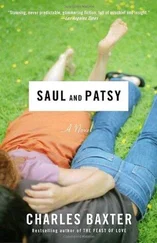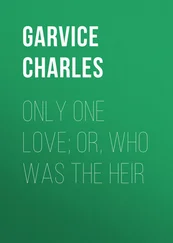That’s not healthy.
THAT NIGHT, WE WERE MAKING hamburgers at the tiny stove, so close to everything that it’s not even in a kitchen, and I told Oscar about it, Janey’s proposal, and you know what he did? He sat there. So I just sat there. Then we both started talking. Eventually he yelled at me and I yelled at him. He and I fought and we ended up crying together, but by the end of the dinner hour we’d decided.
We told each other it wasn’t a big deal.
After all, everybody likes to watch. I mean, I like to watch Oscar, I even like to watch him shave when he’s naked, and he likes to watch me.
We decided to do it. But we wouldn’t go to anyone else’s house, we had to do it here. The guy would have to come in and we would close the door. Those were the conditions. And we did. I called Janey and Janey called him.
THE GUY CAME OVER, just this anonymous middle-aged smallish bald guy with asthma, wearing an old-fashioned gray fedora hat. You could tell his upper lip had been surgically reconstructed. There were flesh fault lines heaving upward from his off-center mouth.
Anyway, this citizen sat on our chair, our furniture — and that was almost the worst part — and we did it for a while, for long enough, anyway. The trouble was, it was an act. And I never felt that Oscar and me were an act before. I couldn’t look back at the guy watching us. I just concentrated on Oscar. I never took my eyes off him. I held on to Oscar like you’d hold on to a lifebuoy that keeps you afloat. At one point his eyes said he couldn’t go on, and my eyes told him he had to, so he did. It was the low point of my life so far.
When we were finished, the guy said he wanted to see us do it again, with some variations.
Oscar sat up in bed. He said okay, sure, in a minute. Then he said he wanted to talk about a movie he’d seen. Did the guy like movies? The guy shrugged. So Oscar said he’d just seen this movie called Cyber Catch or something, and in this movie there’s a vast evil megacomputer that the super-secret government owns that can analyze your DNA from a blood sample. And the computer, the big mainframe, has some people all predicted from here until infinity, their lives laid out and everything based on the DNA, even their afterlives are predicted by the computer before they’re born, in their pre-life. The computer also knows if you’ll go to hell or not, even before you’re born. Your entire post-life is completely mapped out. What it doesn’t get from blood it gets from handwriting samples. The computer wants total control for a consumer society, including the afterlife. The hero and his girlfriend are trying to get at the computer, but the computer knows all about them, so the guy-hero has to think his way into being somebody else in order to defeat the computer, and the girl-hero has to change her identity into, like, this minimum-wage cleaning woman. They’ve got to imagine their escape.
Oscar sat up in bed naked doing this plot summary for about ten minutes. I never knew he could make up stories before that. Then the bald guy with the facial fault lines said, “That’s nice, kid. But if I wanted to go to a movie, I’d go to a movie. Maybe you could do what I’m paying you for, okay?”
“Okay,” Oscar said, and he shrugged his naked shoulder. He turned to me and gave me a peck on the cheek, like the show had to go on.
The second time was harder, that’s all I’ll say. We earned that money. At the end of the show, when we were finished, we got paid. I’d almost never seen so much cash in my life.
I swore off life for a day or two after that. My New Year’s resolution was to bag it.
I won’t even tell you about how I vomited the next day. Or how I got rid of the chair the guy had sat in. My life isn’t sad, I have a good life, so I won’t convey that it’s pathetic or anything. But I did get rid of that chair.
The funny thing was, after all this happened, and before we actually got married, I stopped thinking of myself as a girl. I had thought of myself that way, on and off, up until then. But after that, no. No more girl. The girl was out of me. It didn’t apply. The word sort of made me flinch from then on.
THE LITTLE MARRIAGE EXPERIMENT with Bradley hadn’t worked out, and so here I was, doing a recently divorced debutante show.
It was Saturday. I had drifted into this summer evening party, a back yard gathering with pinprick clouds of gnats disturbing the air, in that space where the other guests were drinking and talking. Farther back, near the garage, a wasp nest was hanging from a maple branch just above the phone lines. I didn’t see any wasps, but the guests were windmilling their hands in front of their faces to keep the gnats away. “Hi, Diana,” they would say, waving as if to say good-bye. The hostess, Lydia, smiled with relief when I came in. I am rarely a disappointing guest. I tend to spice up whatever social gathering I am invited to. I create small harmless scenes.
The weather seemed untroubled. I heard birds crying out, somewhere above us.
These two people, my friends, the hosts, had constructed this back deck a few years ago, parallel gray boards nailed to a frame. Lydia’s taste was for a certain easygoing informality that thrived on summer parties but not winter ones; this marriage, the one with Don, was her third, and all sorts of children and stepchildren and semi-orphans had been dressed up and were serving condiments and hors d’oeuvres. One of them, whose name was Edgar — you don’t expect a small child to be named Edgar — was playing the piano in the den. The windows were open, and the music-beginner’s Mozart — mixed with the sounds of conversation.
People lazed around. They came and went. Coolers full of beer lay open for inspection and slow bluesy jazz arose like candle smoke out of the stereo and was combined near the house with the sound of Edgar’s Mozart, the minuets he was playing. Their house, which was stuffed with scratched-up antiques, was set back far enough away from the street for privacy, and the hedges were littered with kids’ toys, tricycles, and broken plastic battery-operated games. Walking in, you’d see this wreckage, and it was comforting, familial. Then you’d get to the back and note a treehouse falling to pieces close to the nest of wasps. And down there, in the yard, under the wasp nest, the guests had assembled. The invited guests and the more or less invited guests, people like me, our laughter mixing with the sounds of the crickets and the outcasts, the cigarette smokers, huddling in the back corner, grumpily inhaling.
Lydia is a tall, straight-lined woman with curly black hair that sweeps in a tangle down both sides of her face and her neck. She’s not beautiful, exactly, but her eager, smiling intelligence greets you at the doorway, and before very long you’re divulging your small wickednesses to her, and she’s telling you hers, and she takes on the attractiveness of anyone for whom every sub-minor detail is interesting. Interesting events cling to her. She’s a perfect hostess for a party. She’ll just pry the outrageousness out of you for the sake of a story. She wants to hear about everyone, and it’s only later that you remember that you neglected to ask her about herself.
She writes and illustrates children’s books, all of them about a family of goats who are given distinctive individual features like reading glasses, distinctive smirks, uncombed forelocks, and scowls that Lydia has picked up from her two ex-husbands and her own children. I have often wondered what her children thought about finding their own features located in these goats, but I never found the right moment to ask.
The guests were all from Burns Park, a rumpled academic-professional neighborhood, mostly made up of professionally paid know-it-alls, people with opinions and the leisure to express them.
Читать дальше
Конец ознакомительного отрывка
Купить книгу












